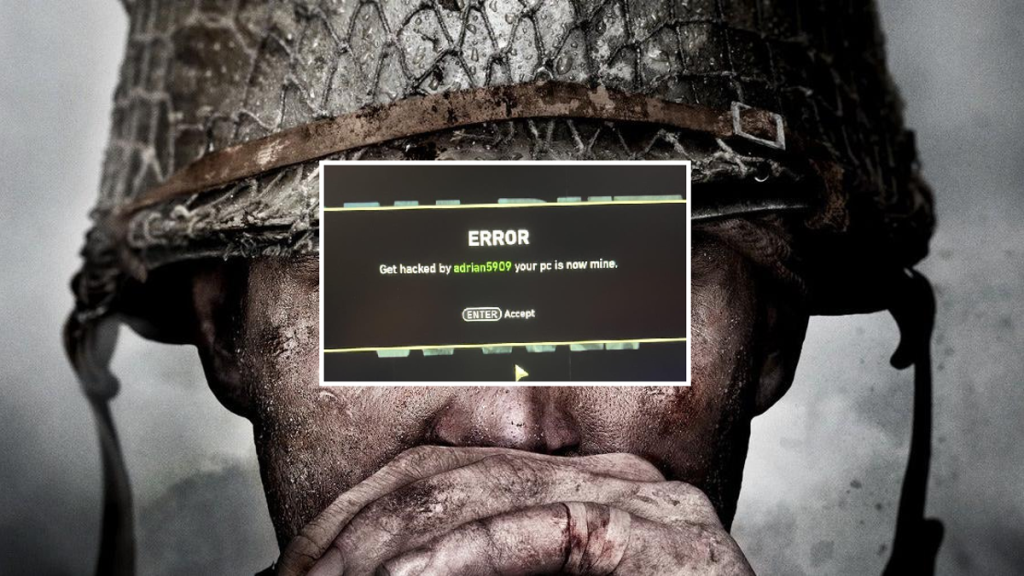The gaming community is reeling after serious security issues were reported in the Call of Duty: WWII game, which was recently made available on Xbox Game Pass and the Microsoft Store for PC. Following the launch on June 30, players quickly reported alarming incidents of hacking and trolling. These incidents, which reportedly included changes to desktop backgrounds and intrusive pop-up messages, raised significant concerns about player safety and data security.
Security Breach Overview
Just days after the game’s addition to the subscription service, Microsoft took the unusual step of removing the game from availability for PC players amid reports of severe hacking vulnerabilities. This decision was confirmed through a post from the official Call of Duty updates account stating, “Call of Duty: WWII on PC Microsoft Store was brought offline while we investigate reports of an issue.” The precise nature of this issue remains ambiguous, but early reports suggest it allowed external actors to gain remote control of players’ computers during gameplay.
The situation escalated quickly, with gaming account vx-underground shedding light on the chaos that ensued. On July 3, they tweeted, “Call of Duty: WWII, available on Xbox PC Game Pass, contains an unpatched RCE exploit. Someone is trolling gamers with Notepad pop-ups, PC shutdowns, and inappropriate content.” Some screenshots from affected players indicated that their screens were filled with intrusive messages, including claims they had been hacked. Players took to social media expressing their frustrations, with one user exclaiming, “I JUST GOT HACKED PLAYING WW2! EVERYONE DO NOT PLAY WW2 ON GAMEPASS!”
Investigating the Vulnerability
The exploit is said to have capitalized on the game’s outdated peer-to-peer matchmaking system, which may have increased its susceptibility to attacks. Unlike other platforms, Steam users were not affected by this breach, as reports from various sources indicate that the versions of the game available on different platforms differ significantly regarding security patches. According to a report by Tech Crunch, sources familiar with the situation noted that the hacking issue arose from game versions on the Microsoft Store, which contained an old flaw no longer present in other editions of the game.
- Game: Call of Duty: WWII
- Platform Affected: Microsoft Store version
- Vulnerability: Remote Command Execution (RCE) exploit
- Type of Attacks: Notepad pop-ups, unauthorized PC shutdowns
- Impacted Users: PC players on Game Pass
Players have raised concerns over the potential for malicious actors to deploy more harmful software, such as remote administration tools or ransomware, through this exploit. A member of vx-underground, identifying as ‘smelly,’ suggested that the attacker’s intent appeared more geared toward “meming and messing with people” rather than causing significant harm. While this may provide some relief, it does not erase the underlying threat that such vulnerabilities pose.
The incident has sparked discussions regarding the responsibility of game publishers in ensuring the security of their products. Security experts emphasize the importance of robust testing and patch management, especially for online multiplayer games where players’ personal information and computer security could be at risk. As noted by a participant on PC Gamer, the community response has been overwhelmingly negative, with a call for better security measures from publishers like Activision, who currently faces issues regarding cheating in their games and legal disputes with cheat developers.
Community Response and Future Outlook
The gaming community’s reaction has been swift and vocal, with many players expressing outrage over the lack of immediate action and clarity from Activision. As of now, the game remains offline while the company investigates the matter. The incident underscored the critical importance of cybersecurity in gaming, particularly as more games are released on subscription models like Game Pass.
Looking ahead, players are hopeful that Activision will implement stronger security measures to prevent similar breaches from happening in the future. As the company continues to face legal challenges and scrutiny regarding cheating and exploitative practices within its games, this incident may serve as a wake-up call to invest more resources into securing their titles.
For now, players are advised to steer clear of Call of Duty: WWII on PC until further notice, as the potential for serious hacking incidents remains a concern. Activision has yet to issue a formal response to the ongoing issues, leaving players in a state of uncertainty.

